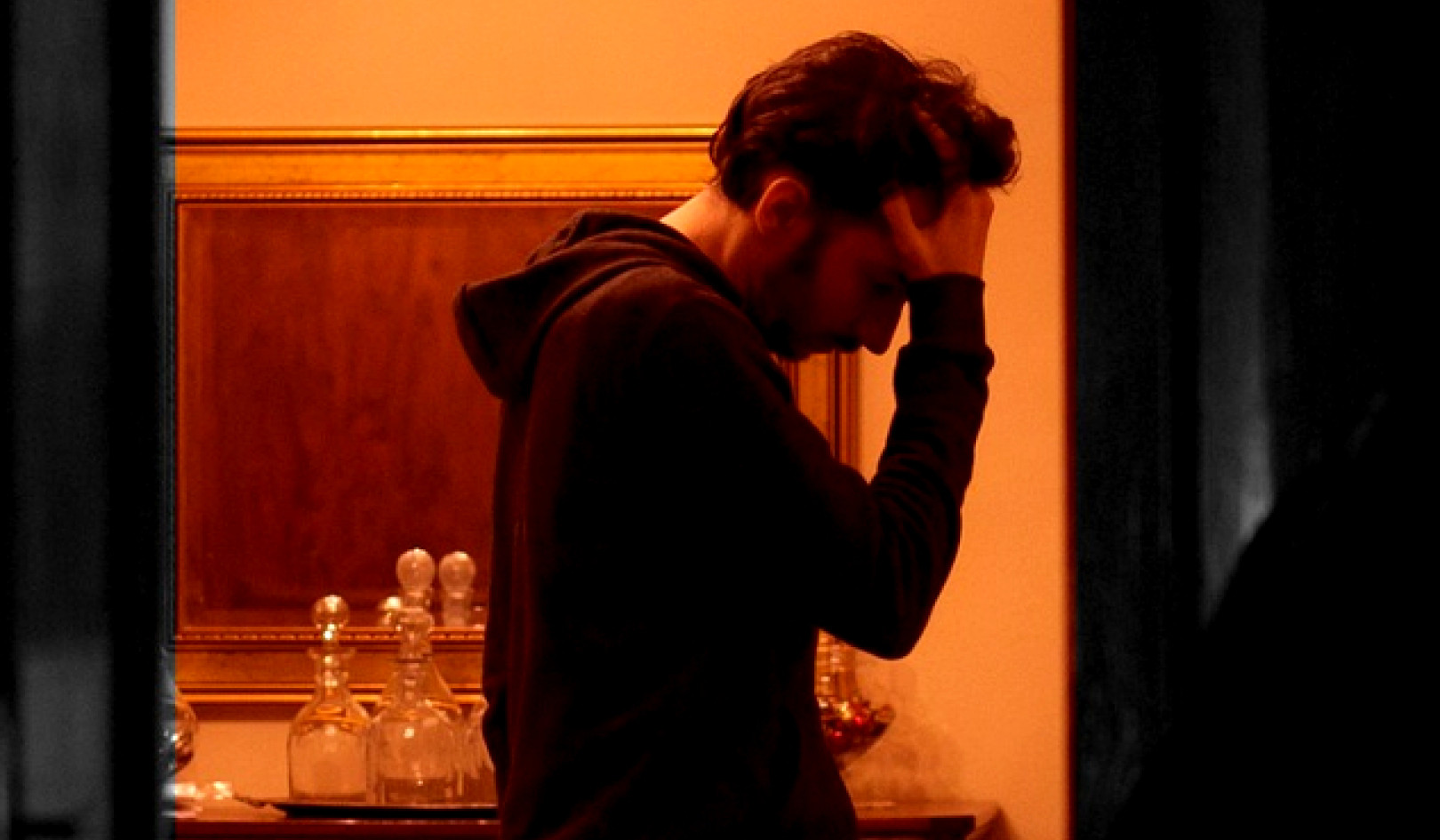 People gather on the rocks outside the famous Fogo Island Inn, part of a social enterprise aimed at helping local communities hit hard by the collapse of the cod industry. (Alex Fradkin, courtesy of Shorefast/Fogo Island Inn), Author provided
People gather on the rocks outside the famous Fogo Island Inn, part of a social enterprise aimed at helping local communities hit hard by the collapse of the cod industry. (Alex Fradkin, courtesy of Shorefast/Fogo Island Inn), Author provided
Social distancing and stay-at-home measures around the globe have been necessary to tackle the COVID-19 crisis. Yet these measures have led to increased rates of loneliness and depression as people continue to physically distance from each other.
More than 30 per cent of the world’s population now faces restrictions related to COVID-19. The impact on mental health has rapidly become apparent. According to one recent study, levels of depression in Canada have more than doubled in the past few weeks, rising to 16 per cent from seven per cent.
The scope of mental health challenges continues to mount, but the underlying problem has been brewing for a long time. Over the past decades, increased globalization and online interactions have disconnected us from our local communities.
We now order food and products on Amazon and they conveniently and anonymously arrive at our door. Without the face-to-face contact with the people behind our products, we lose out on human connection.
An antidote to isolation
Our team’s in-depth research offers one antidote to the loss of human connection. For seven years, we studied Shorefast, a registered Canadian charity aiming to revitalize Fogo Island, a community of 2,500 people off the northeast coast of Newfoundland.
Like other fishing communities, Fogo Island was hard hit by the collapse of its primary industry, the cod fishery. In 1992, the Canadian government imposed a moratorium on cod fishing, causing people to lose their livelihoods and flee their communities in search of work in urban centres.
In 2006, Shorefast set out to rebuild Fogo Island and restore its local economy by developing a number of social enterprises, including the award-winning Fogo Island Inn, a 29-bedroom inn designed to honour the place.
Drawing on a deep culture of hospitality, the inn hires local residents to offer guests personal tours of the island, connecting them to its culture and history.
 Visitors are attracted to the remote beauty of Fogo Island. (Alex Fradkin, courtesy of Shorefast/Fogo Island Inn)
Visitors are attracted to the remote beauty of Fogo Island. (Alex Fradkin, courtesy of Shorefast/Fogo Island Inn)
Local artisans made the quilts that adorn all the beds as well as the wooden furniture found throughout the inn. These products are sold at the Fogo Island Shop, another of Shorefast’s social enterprises. These businesses, whose surpluses are reinvested into the community, have created new economic opportunities while also fostering deeper human connections.
The importance of local places
What can Shorefast teach us about how to revitalize depleted communities? Our research uncovered five key insights that we capture in the PLACE model of Community Development, so named to highlight the importance of local places for human well-being.
-
Promote community champions. Social enterprises can identify and support community champions as positive change agents. Shorefast has empowered community members both young and old to start new businesses, volunteer at community events and become involved in local governance, all of which are key in revitalizing a community.
-
Link divergent perspectives. To create new capacities, social enterprises can broker linkages between insider and outsider knowledge and new and traditional skills. For example, Shorefast invited globally recognized designers to work alongside local woodworkers to create new place-inspired pieces for the inn.
-
Assess local capacities. Social enterprises can help a communities rediscover and repurpose their human, ecological, institutional and infrastructural assets. To uncover Fogo Island’s potential to develop new businesses and initiatives, Shorefast started by asking questions to community members like: “What do we have? What do we love? What do we miss?”
-
Convey compelling narratives. By communicating positive stories, social enterprises can provide hope and counter negative, self-defeating discourses. Shorefast recognized that narratives can be a powerful motivational tool, and they often repeat positive messages about Fogo Island’s history and culture in presentations and media interviews. These messages, in turn, attract visitors, new residents and investors.
-
Engage both/and thinking. Social enterprises can approach what appear to be opposites, such as social and financial goals, as a “both/and” instead of an “either/or” to reveal innovative solutions. For example, Shorefast looked for new ways with old things. This approach inspired handmade modern textiles and place-based contemporary architecture that has drawn global attention, commanded premium prices and stimulated the local economy.
We will need to re-establish prosperity, well-being and human connection during and after this global pandemic. This will depend on our ability to rebuild our local communities and the social enterprises that help support them. It’s this community-minded approach that will play a central role in rebuilding our economy, and also in improving our human experience.![]()
About The Author
Natalie Slawinski, Associate Professor, Strategic Management, Memorial University of Newfoundland and Wendy K. Smith, Professor of Business and Leadership, University of Delaware
This article is republished from The Conversation under a Creative Commons license. Read the original article.

Related Books:
The Five Love Languages: The Secret to Love That Lasts
by Gary Chapman
This book explores the concept of "love languages," or the ways in which individuals give and receive love, and offers advice for building strong relationships based on mutual understanding and respect.
Click for more info or to order
The Seven Principles for Making Marriage Work: A Practical Guide from the Country's Foremost Relationship Expert
by John M. Gottman and Nan Silver
The authors, leading relationship experts, offer advice for building a successful marriage based on research and practice, including tips for communication, conflict resolution, and emotional connection.
Click for more info or to order
Come as You Are: The Surprising New Science that Will Transform Your Sex Life
by Emily Nagoski
This book explores the science of sexual desire and offers insights and strategies for enhancing sexual pleasure and connection in relationships.
Click for more info or to order
Attached: The New Science of Adult Attachment and How It Can Help You Find—and Keep—Love
by Amir Levine and Rachel Heller
This book explores the science of adult attachment and offers insights and strategies for building healthy and fulfilling relationships.
Click for more info or to order
The Relationship Cure: A 5 Step Guide to Strengthening Your Marriage, Family, and Friendships
by John M. Gottman
The author, a leading relationship expert, offers a 5-step guide for building stronger and more meaningful relationships with loved ones, based on principles of emotional connection and empathy.

























